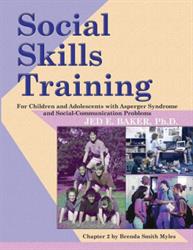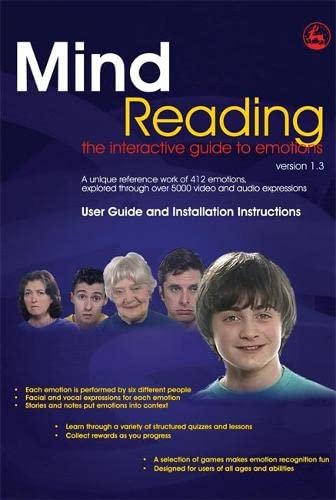
Some people with autism spectrum disorder (ASD) might exhibit creative thinking skills, an attention to detail, and a fondness for repetitive tasks and research; all of which are desirable traits in a workplace. Most adults seek competitive, gainful employment that aligns with their interests and abilities, and people with ASD are no different. Unfortunately, research indicates that members of the ASD community are vastly underemployed or unemployed (Palumbo, 2021). An employer might not be interested in hiring someone with ASD due to the applicant’s perceived lack of emotional intelligence and social skills, including the inability to understand social cues. . Thankfully, programs and supports exist to help individuals with ASD be more successful in a work environment. Employers can also take various measures to make the work place more inclusive for those with neurodiversities, while educating themselves to best understand their employees on the spectrum.
Featured Resources
All featured resources are available to borrow from the DRL
Browse more resources.Social Skills Training for Children and Adolescents with Asperger Syndrome

By: Jed Baker and Brenda Myles
A "how-to" manual that covers everything from assessment and strategies for social skills training, to generalization of those skills, behavior management, and the often-overlooked importance of promoting peer acceptance through sensitivity training. Addresses practically every possible social situation.
Overcoming the Odds: Vocational Success Stories
By: Ellen Rubenstein Bauer
Featured Technologies
To browse more technologies, click here.Mind Reading: The Interactive Guide to Emotions (DVD)

A unique reference work covering the entire spectrum of human emotions. Available as a DVD-ROM and set of CD-ROMs running on either a Windows or Apple Macintosh computer. Explore over 400 emotions, seeing and hearing each one performed by six different people.
Computers at Work Software
Software that focuses on the actual computer skills that prepare users for office jobs. Includes order processing and data entry which challenge the user to work independently while learning real office procedures.
Navigation Tips
Employment types for people with ASD:
- Competitive employment – employee is completely independent in the work environment. They advocate for themselves and ask for job accommodations if needed.
- Supported employment – employee has a support system in place for success at work, such as job coaching that can be ongoing or just for training purposes, or an advocate to address necessary accommodations. Often, the employment support person will work with the employer to ensure the job responsibilities are individualized.
- Secure or sheltered employment – work setting is often facility-based and includes intensive and ongoing job coaching and skill training simultaneous to accomplishing work tasks.
Visit the West Virginia Department of Rehabilitation Services to learn more.
For Employers to Know:
- Employers should educate themselves about ASD so they know what it is and what it might look like in the workplace.
- When interviewing someone with ASD, similarly to interviewing someone without, employers should focus on whether or not the person is capable of performing the work tasks.
- Always focus on the applicant’s reported abilities, strengths and work experiences rather than one’s own perceptions of what an applicant can’t do based on a diagnosis.
- Schedule sensitivity in-service training for all employees so all know how to interact with someone with ASD (such as a team member, customer, patron, client, etc.).
- Learn what types of accommodations would make the person with ASD perform best by asking the person directly or by observing. For example, limit excessive noise in the office space, respect personal space and avoid touch to show kindness, one-on-one follow ups with the individual after meetings to limit distractions, provide warning of changes in schedule farther in advance if possible.
- Provide consistent, direct and constructive feedback. Communicating in a direct and open way is critical for a person with ASD who may not pickup social cues, body language, or euphemisms when something needs addressed.
Nicholas Larson, Positive Behavior Support Lead Clinical Educator
For the last 10 years, Nick Larson has worked for the WVU Center for Excellence in Disabilities in various forms to provide individual consultation and wider training to parents, professionals, and directly to children and youth. In his role as the Positive Behavior Support Lead Clinical Educator, he helps families and teams identify common goals to work towards and how to fill their theoretical toolboxes with the skills to solve problems. He has worked within the community to provide general disability education aimed at school-aged children and anger management for youth, while taking part in other efforts to better recognize and overcome childhood adversity as a society.
Nick is greatly inspired by the appreciation and feedback he receives from the clients and families he serves. When a family expresses gratitude or has positive outcomes as a result of working with Nick, he is reassured of his purpose and passion. Additionally, Nick feels that he is motivated in his work by his supportive mentors and collaborators who have been critical in his professional development and confidence building.
Nick feels one of his greatest accomplishments so far is being a part of a program that is constantly improving and expanding to reach more children, families and teams. He believes a program that is creative in problem solving provides the type of flexible and individualized service that defines holistic, person-centered care. His professional goals for the future focus on the potential of the program and the need in the state. Nick hopes to continue to expand and to work more directly with the communities and infrastructures that support the interests of children in West Virginia.
References:
Palumbo, J. (2021). Why Autism Speaks is encouraging companies to hire those on the Autistic Spectrum. https://www.forbes.com/sites/jenniferpalumbo/2021/04/27/why-autism-speaks-is-encouraging-companies-to-hire-those-on-the-autistic-spectrum/?sh=4dcdd9ff52a2.
